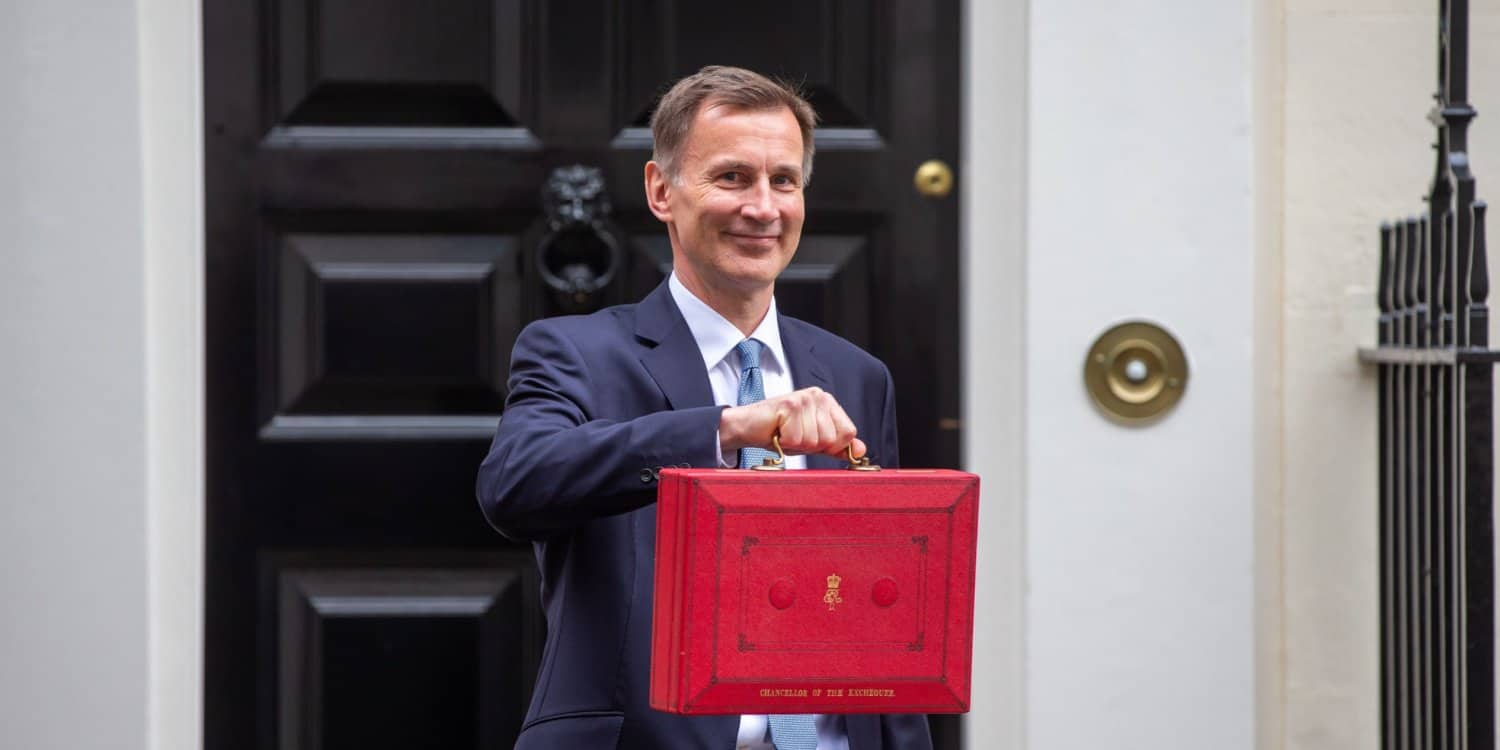On Wednesday, 6 March, Chancellor Jeremy Hunt delivered the Spring Budget 2024. This was accompanied by a full fiscal statement from the Office for Budget Responsibility (OBR). We provide an overview of the key measures that may affect you as a small business owner, from National Insurance reform to VAT threshold changes.
Further cuts to National Insurance rates
Following the previous reductions in National Insurance rates in the 2023 Autumn Statement, the government has announced further cuts to both Class 1 and Class 4 NIC rates, as was widely anticipated. Since National Insurance is UK-wide, these cuts will benefit around 27.6 million employees and 2.2 million self-employed workers.
Class 1 National Insurance
From 6 April 2024, the main rate of Class 1 (primary) National Insurance, payable by employees and company directors through PAYE, will be reduced by 2 percentage points, from 10% to 8%. This is in addition to the 2p cut introduced on 6 January this year.
According to government estimates, these combined cuts will provide savings of over £900 per year to the average worker earning £35,400.
Unfortunately, the rate of employers’ Class 1 NICs remains the same. Coupled with the increases in National Minimum Wage and National Living Wage rates from 1 April 2024, many UK employers will see a rise in their employment costs.
Class 4 National Insurance
There will also be a further 2p cut to the main rate of Class 4 National Insurance payable by self-employed workers, on top of the 1p cut announced in the Autumn Statement. This means that, from 6 April 2024, Class 4 NIC will be reduced by 3 percentage points, from 9% to 6%.
When considered alongside the government’s commitment to abolish Class 2 National Insurance contributions from April this year, the average self-employed person with profits of £28,000 will save approximately £650 a year.
Whilst the government proclaims in the Spring Budget that “a person on the average wage now has the lowest effective personal tax rate since 1975”, the cuts to NICs fail to offset the additional tax that workers are paying due to other changes and frozen tax thresholds at a time of high inflation.
According to the Resolution Foundation, individuals who earn up to £19,000 will still be worse off than if the annual Personal Allowance (currently £12,570) had been increased in line with inflation. Those earning at least £50,000 will see the biggest gains.
Increases to VAT thresholds
From 1 April 2024, the government will increase the VAT registration threshold from £85,000 to £90,000. This will be the first change since 2017. The VAT deregistration threshold will also increase, from £83,000 to £88,000.
This unexpected rise in the registration threshold will mean that over 28,000 small businesses will no longer be liable to charge VAT unless they choose to register voluntarily.
However, the modest increase does little to resolve the cliff-edge problem, where many small businesses artificially keep their taxable turnover below the VAT threshold to avoid the expense and administrative burden of registration.
Higher rate of Capital Gains Tax reduced
After much speculation, the Chancellor made another surprise move in the Spring Budget by reducing the higher rate of Capital Gains Tax on the sale of residential properties from 28% to 24%.
This 4% reduction, which will take effect from 6 April 2024, will be welcome news for many landlords and may go some way toward encouraging the sale of second homes and buy-to-let properties.
Furnished holiday lettings (FHL) tax regime abolished
From 6 April 2025, the government will abolish the furnished holiday lettings (FHL) regime. This will remove the current tax advantage enjoyed by landlords who let short-term furnished holiday properties over those who let long-term residential properties to tenants.
The aim of this measure is to make the property tax system fairer and more efficient, by levelling the playing field between long-term and short-term lets, whilst also making it easier for people to find housing in their local communities.
New tax reliefs for creative industries
The Chancellor pledged over £1 billion of new tax reliefs for creative industries. This includes:
- 40% relief from business rates for the next 10 years for eligible film studios in England
- a new UK Independent Film Tax Credit
- a 5% increase in the rate of tax credit
- removal of the 80% cap for visual effects costs in the Audio-Visual Expenditure Credit
A permanent extension will be made to tax relief for museums, galleries, theatres, and orchestras, whilst £26 million will be provided to fund upgrades to the National Theatre’s stages and infrastructure.
Scope of capital allowances extended
The government intends to extend full expensing to leased assets once fiscal conditions allow. Draft legislation will be published in due course.
Full expensing enables companies to write off the full cost of buying qualifying plant and machinery against their Corporation Tax bill. It is equivalent to a 25% tax saving for capital expenditure.
Initially introduced as a temporary ‘super deduction’ in 2021, it was made permanent in the 2023 Autumn Statement.
However, full expensing currently only applies to companies that buy machinery for their own use. It does not apply to hire companies that lease machinery or vehicles to end-users, which is common across many business sectors.
The new measure, when introduced, will address this disparity and meet the investment needs of many more businesses.
Freeze on Alcohol Duty
The freeze on Alcohol Duty rates was due to end in August this year, but the current levels will now remain in place until 1 February 2025. Without this action, rates would have increased by 3% in line with inflation.
On top of the extension to the 75% business rates discount announced in the Autumn Statement, the freeze will benefit around 38,000 pubs across the UK.
It is hoped that this measure will provide greater certainty and stability for hospitality businesses and help them to keep their prices down.
Fuel Duty Frozen
The temporary 5p cut in Fuel Duty was due to expire at the end of March 2024. However, to support people with the cost of living, the Chancellor announced in the Spring Budget that Fuel Duty will remain frozen until March 2025.
By extending the 5p cut for a further 12 months and cancelling the planned increase in duty in line with inflation for 2024-25, the average car driver will save £50 over the year.
This will also be welcome news to sole traders and other business owners who rely on their cars for work and cover the cost of their employees’ mileage.
New British ISA and British Savings Bonds
To encourage more savers to invest in UK companies, the government is introducing a new British ISA, providing an additional £5,000 allowance for UK equities on top of the existing £20,000 ISA allowance.
The Chancellor said this will “ensure UK savers can benefit from the most promising UK businesses as well as supporting those businesses with the capital to expand.”
To help people save for the longer term, new British Savings Bonds will also be introduced from April 2024. Delivered through National Savings and Investments (NS&I), these will be three-year fixed-rate Issues of NS&I’s Guaranteed Income Bonds and Guaranteed Growth Bonds.
Changes to the High Income Child Benefit Charge
The threshold for the High Income Child Benefit Charge will increase from £50,000 to £60,000 from 6 April 2024. There will also be a new tapered charge between £60,000 and £80,000.
Additionally, following extensive campaigning by MoneySavingExpert.com and its founder Martin Lewis, the Chancellor revealed plans to review the unfairness in the existing Child Benefit system, whereby individuals who earn between £50,000-£60,000 and claim the benefit are required to pay some of it back.
The government acknowledged this contentious issue in the Spring Budget Executive Summary, which states: “It is not fair that a household with two parents each earning £49,000 a year will receive Child Benefit in full, while a household earning less overall, but with one parent earning over £50,000, will see some or all of the benefit withdrawn.”
It is the government’s intention to remove the unfair rule and move to a new system that is based on household income rather than individual income by April 2026.
Changes to the non-dom regime
The largest tax-raising measure introduced by the Chancellor is the abolition of the current remittance basis tax regime for non-UK domiciled individuals (non-doms) from 6 April 2025. This will be replaced with a modernised residence-based regime that is fairer and simpler.
Under the new system, individuals who move here will enjoy 100% UK tax relief on all foreign income and gains (FIG) during their first four years of tax residency, provided they have been non-resident for 10 consecutive years prior to arrival.
From the fifth year, any person who continues to be tax-resident in the UK will be liable to UK tax on any newly arising foreign income and gains, regardless of where they are domiciled.
There will be transitional arrangements for existing non-domiciled individuals claiming the remittance basis. Furthermore, non-doms will not be liable to Inheritance Tax on non-UK assets until they have been resident in the UK for 15 out of the past 20 tax years.
Thanks for reading
The Spring Budget 2024 is available to view online, along with the full economic and fiscal outlook from the Office for Budget Responsibility.
Explore the Rapid Formations Blog for more small business news, insights, and guidance.
Please note that the information provided in this article is for general informational purposes only and does not constitute legal, tax, or professional advice. While our aim is that the content is accurate and up to date, it should not be relied upon as a substitute for tailored advice from qualified professionals. We strongly recommend that you seek independent legal and tax advice specific to your circumstances before acting on any information contained in this article. We accept no responsibility or liability for any loss or damage that may result from your reliance on the information provided in this article. Use of the information contained in this article is entirely at your own risk.











